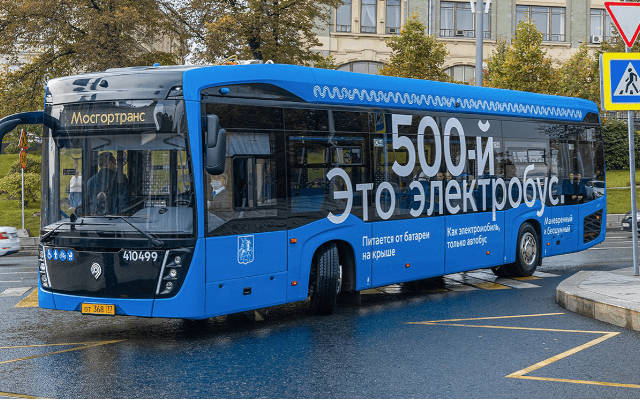 EDITOR'S PICK
EDITOR'S PICK
Charlie Munger's BYD Bet: Berkshire's Billion-Dollar EV Play
30 Aug 2025 | Synopsis
 Charlie Munger led Berkshire Hathaway to invest $230M in BYD in 2008, recognizing its potential in batteries and EVs. Displayed at the Omaha shareholder meeting, BYD grew into a global EV leader. Berkshire's stake peaked near $9.5B, with over $7B in profit from sales. Now holding under 5%, Berkshire's move reflects Munger's long-term vision and BYD's rise as a vertically integrated powerhouse in electric mobility.
Charlie Munger led Berkshire Hathaway to invest $230M in BYD in 2008, recognizing its potential in batteries and EVs. Displayed at the Omaha shareholder meeting, BYD grew into a global EV leader. Berkshire's stake peaked near $9.5B, with over $7B in profit from sales. Now holding under 5%, Berkshire's move reflects Munger's long-term vision and BYD's rise as a vertically integrated powerhouse in electric mobility.Mercedes-AMG's Axial Flux Revolution: Real Tech, Not Clickbait
30 Aug 2025 | Synopsis
 Mercedes-AMG's axial flux motors from YASA offer up to 4× the torque density of conventional EV motors, enabling compact, oil-cooled drive units with sustained high output. The AMG GT XX concept uses three motors delivering over 1,000 hp and sets the stage for production in 2026. Competing designs from Magnax and Lucchi push efficiency and modularity, but Mercedes leads with centralized deployment on its AMG.EA platform. Axial flux tech outclasses ICE in power, size, and efficiency.
Mercedes-AMG's axial flux motors from YASA offer up to 4× the torque density of conventional EV motors, enabling compact, oil-cooled drive units with sustained high output. The AMG GT XX concept uses three motors delivering over 1,000 hp and sets the stage for production in 2026. Competing designs from Magnax and Lucchi push efficiency and modularity, but Mercedes leads with centralized deployment on its AMG.EA platform. Axial flux tech outclasses ICE in power, size, and efficiency.Moscow's Electric Bus Expansion Amid the Ukraine War
30 Aug 2025 | Synopsis
 Moscow is expanding its electric and autonomous bus fleet, now the largest in Europe, but the Ukraine war has slowed progress. Sanctions and supply shortages hinder access to key tech, forcing a shift to domestic production. Fuel shortages from refinery attacks, cyber disruptions, and strained budgets add pressure. Despite setbacks, Moscow aims to replace diesel buses by 2030, though war-driven economic strain threatens long-term transit modernization.
Moscow is expanding its electric and autonomous bus fleet, now the largest in Europe, but the Ukraine war has slowed progress. Sanctions and supply shortages hinder access to key tech, forcing a shift to domestic production. Fuel shortages from refinery attacks, cyber disruptions, and strained budgets add pressure. Despite setbacks, Moscow aims to replace diesel buses by 2030, though war-driven economic strain threatens long-term transit modernization.Rivian's Maximus Drive Unit Boosts R2 SUV Power Density & Manufacturing Efficiency
30 Aug 2025 | Synopsis
 Rivian's Maximus drive unit, launching with the R2 SUV in early 2026, boosts power density by 40% over previous models. It’s smaller, lighter, and easier to manufacture thanks to a simplified stator, integrated cooling and electronics, and fewer fasteners. A redesigned wiring harness further streamlines production, reduces weight enhancing scalability and efficiency.
Rivian's Maximus drive unit, launching with the R2 SUV in early 2026, boosts power density by 40% over previous models. It’s smaller, lighter, and easier to manufacture thanks to a simplified stator, integrated cooling and electronics, and fewer fasteners. A redesigned wiring harness further streamlines production, reduces weight enhancing scalability and efficiency.The Biggest Untold Story of 2025: Energy Fragility and Economic Risk
29 Aug 2025 | Synopsis
 A deepening energy crisis is quietly reshaping global stability. Aging infrastructure, declining EROEI, and financial overextension expose systemic vulnerabilities. As oil production plateaus and economic models falter, the risks of supply shocks and cascading failures grow. Chris Martenson—economic researcher and creator of The Crash Course—guides viewers through this urgent, underreported threat, rekindling the long denigrated "Peak Oil" debate
A deepening energy crisis is quietly reshaping global stability. Aging infrastructure, declining EROEI, and financial overextension expose systemic vulnerabilities. As oil production plateaus and economic models falter, the risks of supply shocks and cascading failures grow. Chris Martenson—economic researcher and creator of The Crash Course—guides viewers through this urgent, underreported threat, rekindling the long denigrated "Peak Oil" debate
 EVWorld Exclusive
EVWorld Exclusive
Toyota FT-Me: Shared Mobility Concept with Big Implications
17 Oct 2025 |  Toyota's FT-Me is a two-seat electric microcar designed for shared urban mobility, not just teens. Developed with UK government support, it features hand-only controls, solar panels, and a lightweight frame. Aimed at car clubs and last-mile use, it could offer affordable, accessible transport with low emissions. With steady utilization and supportive policy, FT-Me may become a viable, sustainable option in the UK's evolving mobility landscape.
Toyota's FT-Me is a two-seat electric microcar designed for shared urban mobility, not just teens. Developed with UK government support, it features hand-only controls, solar panels, and a lightweight frame. Aimed at car clubs and last-mile use, it could offer affordable, accessible transport with low emissions. With steady utilization and supportive policy, FT-Me may become a viable, sustainable option in the UK's evolving mobility landscape.
Creative Destruction vs. Fossil Retrenchment: Why Project 2025 Risks Leaving America Behind
16 Oct 2025 |  Project 2025 protects fossil fuel incumbents by dismantling Biden-era clean energy policies. Nobel economist Philippe Aghion argues that climate progress depends on creative destruction - letting green innovators outcompete legacy polluters. The U.S. risks falling behind as global markets embrace clean tech. Even its passport has slipped from the top 10. Innovation, not retrenchment, is the path forward
Project 2025 protects fossil fuel incumbents by dismantling Biden-era clean energy policies. Nobel economist Philippe Aghion argues that climate progress depends on creative destruction - letting green innovators outcompete legacy polluters. The U.S. risks falling behind as global markets embrace clean tech. Even its passport has slipped from the top 10. Innovation, not retrenchment, is the path forward
Buick Electra E5: China-Built EV Poised for U.S. Launch
16 Oct 2025 |  Buick's Electra E5, built in China by SAIC-GM, is set to become GM's first imported EV for the U.S. market. Though its launch was delayed indefinitely in 2024, a tentative 2026 rollout remains part of GM's electrification roadmap. With Ultium battery tech, strong performance specs, and positive reception in China, the Electra E5 represents a strategic shift in global EV sourcing and branding.
Buick's Electra E5, built in China by SAIC-GM, is set to become GM's first imported EV for the U.S. market. Though its launch was delayed indefinitely in 2024, a tentative 2026 rollout remains part of GM's electrification roadmap. With Ultium battery tech, strong performance specs, and positive reception in China, the Electra E5 represents a strategic shift in global EV sourcing and branding.
China's EV Boom Masks a Hidden Inventory Problem
15 Oct 2025 |  China's EV market shows strong wholesale growth, but retail sales lag behind. In April 2025, the wholesale-retail ratio hit 1.27:1, signaling inventory buildup. Automakers push stock to dealers to meet targets, risking oversupply. Analysts warn this gap could lead to price wars and financial strain. Retail data offers a clearer view of consumer demand and market health.
China's EV market shows strong wholesale growth, but retail sales lag behind. In April 2025, the wholesale-retail ratio hit 1.27:1, signaling inventory buildup. Automakers push stock to dealers to meet targets, risking oversupply. Analysts warn this gap could lead to price wars and financial strain. Retail data offers a clearer view of consumer demand and market health.
Putting Children First: Lessons from Paris for Atlanta
15 Oct 2025 |  Paris redesigned its streets with children in mind - wider sidewalks, less traffic, and safer zones near schools. This child-first approach improved mobility for all, including seniors and cyclists. Atlanta can learn from Paris by investing in protected bike lanes, rethinking zoning, and prioritizing equity. A city where children thrive is safer, healthier, and more connected. The shift is not just practical - it's a moral imperative.
Paris redesigned its streets with children in mind - wider sidewalks, less traffic, and safer zones near schools. This child-first approach improved mobility for all, including seniors and cyclists. Atlanta can learn from Paris by investing in protected bike lanes, rethinking zoning, and prioritizing equity. A city where children thrive is safer, healthier, and more connected. The shift is not just practical - it's a moral imperative.
SEARCH RSSTREAM
 32 New Postings In Past 24 Hours
32 New Postings In Past 24 Hours
Category:finance
Region:NoAmerica
Date:17 Oct 2025
Category:environment
Region:NoAmerica
Date:17 Oct 2025
Category:mobility
Region:AsiaPacific
Date:17 Oct 2025
Category:finance
Region:NoAmerica
Date:17 Oct 2025
Category:mobility
Region:NoAmerica
Date:17 Oct 2025
Category:finance
Region:NoAmerica
Date:17 Oct 2025
Category:review
Region:Europe
Date:17 Oct 2025
Category:mobility
Region:Global
Date:17 Oct 2025
Category:energy
Region:NoAmerica
Date:16 Oct 2025
Category:mobility
Region:AsiaPacific
Date:16 Oct 2025
Category:finance
Region:NoAmerica
Date:16 Oct 2025
Category:energy
Region:NoAmerica
Date:16 Oct 2025
Category:mobility
Region:Europe
Date:16 Oct 2025
Category:energy
Region:AsiaPacific
Date:16 Oct 2025
Category:mobility
Region:NoAmerica
Date:16 Oct 2025
Category:energy
Region:NoAmerica
Date:16 Oct 2025
Category:mobility
Region:NoAmerica
Date:16 Oct 2025
Category:mobility
Region:Europe
Date:16 Oct 2025
Category:autonomy
Region:NoAmerica
Date:16 Oct 2025
Category:energy
Region:AsiaPacific
Date:16 Oct 2025
